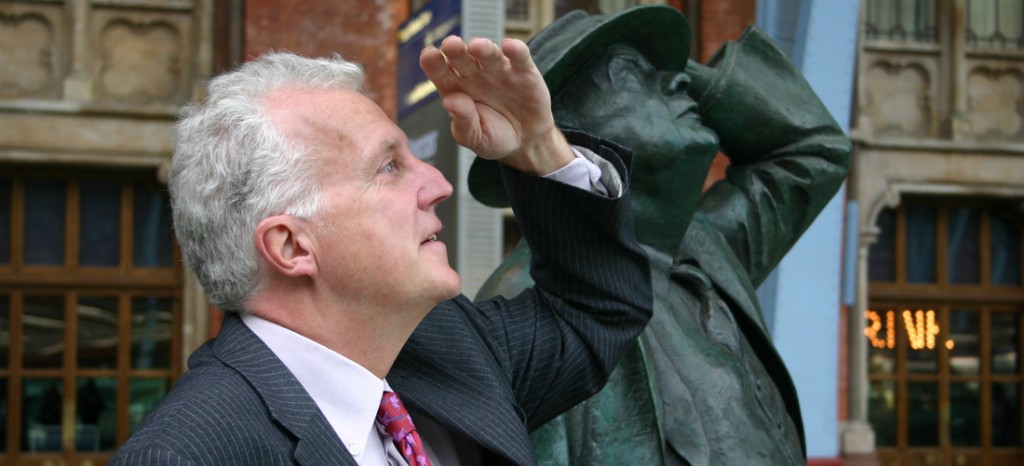Matthew Engel, Eleven Minutes Late, a train journey to the soul of Britain, Macmillan, £14 99
It is rare to find a book that encapsulates a bit of everything but this one does: it is a history of the railways told through a journey around Britain, taking in bits of culture, geography and, above all, Britishness, in particular our ability to put up with a train service that should be so much better. It is about trains and the railways, but ever so much more, too, as Engel tours round the country finding both beauty and ugliness – he takes against Morecambe, in particular. It is also very funny as the author has a dry, somewhat self-deprecating, wit that sets the tone for the whole book.
Engel, a former Guardian journalist and editor of Wisden, the cricketers’ bible, knew what was coming when he set out on his journey around Britain to find out the state of Britain’s railways. He lives in Herefordshire, and regularly suffers the vagaries of the Great Western line, but even such an experienced traveller was shocked by the worst aspects of the system.
And they were not necessarily the oldest trains. He takes the longest ride in the country, from Penzance to Dundee, on a Voyager in a state of transition between Arriva and Virgin, a 12 hour journey, and the experience is not a happy one.He bemoans the fact that the train does not even have a romantic name but instead is called the XC3170: ‘After more than a decade of privatized trains, these companies can’t be bothered to make even the most basic gesture towards making passengers feel special….the seats are hard, the luggage space is niggardly; and the toilets are notoriously unreliable and smelly’. Indeed, as the journey progresses, the toilets gradually deteriorate, stinking and leaking.
The staff he found generally helpful and supportive but there was one remarkable exception. On a Pendolino train, he drops into the shop and while he is loitering in the shop seeking out his breakfast and something to read, the Virgin steward, Umerji, barks out: ‘have a bacon roll, you c**t’ and then, while he is still hesitating, ‘or you will be here all f*****g day’. Richard Branson should be told.
It is not all a negative experience. As he puts it, ‘I love trains. I hate trains.’, the kind of mixed feelings most of us have about this wonderful invention that changed the world. He enjoys a proper tea with thin cut sandwiches and a scone with thick cream and jam on National Express East Anglia only to discover that days later the company announced it was going to scrap its dining cars. While not overtly ideological or political, he is no fan of the privatized railway bemoaning the fact that the operators seem so bad at providing any sense of style or at marketing, ‘things private enterprise is supposedly good at.
Indeed, despite all the errors on the railways made by administrators and politicians throughout their 180 year history, Engel reserves his best acerbic comments for today’s incompetent and customer-unfriendly private train operators under the system created by the Major government of the mid 1990s. Amazingly, John Major, who has rarely spoken about the privatisation he oversaw, grants an interview to Engel who finds that far from being a disinterested observer of the affair, which is the accepted view of historians (including this one), Major, who calls himself ‘the thin controller’ drove rail policy and can be held responsible for it. Engel is damning: ‘John Major had a plan for the railways. It was a terrible plan, execrably executed’. There’s not many who would disagree with that.
Christian Wolmar is author of Fire & Steam, a history of Britain’s railways, described bythe Guardian as ‘complementary’ to Engel’s book.
